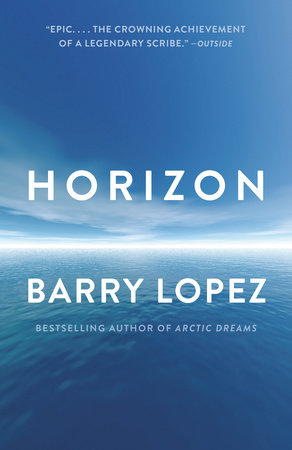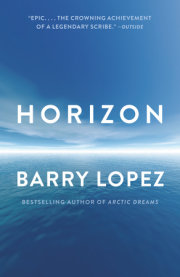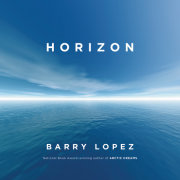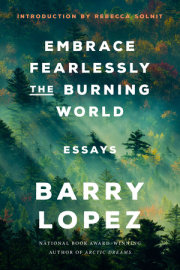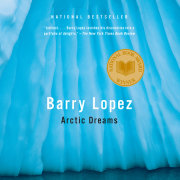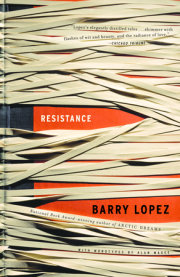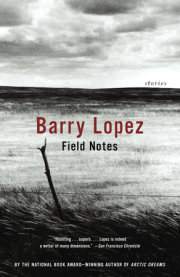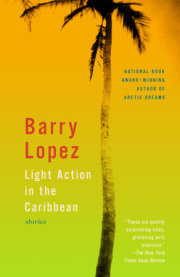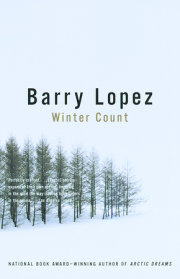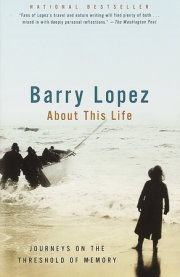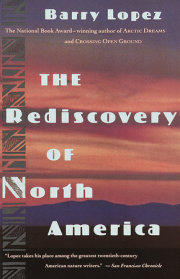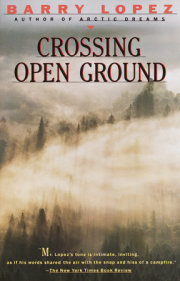1. Mamaroneck A history, one purporting to depict the life trajectory of the grandfather reading by the pool, could easily begin 65 years before that moment in Hawai‘i, in an embayment of Long Island Sound called Mamaroneck Harbor. Here is a stretch of sheltered water, a surface barely roughened that day by a wind blowing westward from the direction of Crane Island. A boy who cannot yet swim wades steadily farther out into the salt water, under the shepherding gaze of his mother. She’s hardly fifty feet away, a dark-haired woman in her middle thirties, her legs tucked beneath her, her belly round with a second child. She’s sitting on a wool blanket, embroidering a needlepoint image of field flowers erect in a vase. It’s 1948. She’s conversing with a friend underneath a large white oak tree on Orienta Point, on the Westchester County coast of New York.
The boy halts when he reaches water up to his chin. She watches him steadily now. He wants to go farther, to swim out past Turkey Rock, out farther even, out beyond the Scotch Caps, two islets on the distant rim of the Sound. Past that lies a horizon of water. A blank page.
He turns for shore, scuttling sideways like a crab in ripples that break over his small shoulders.
A few months later, with the approach of a New England winter and following the birth of his only sibling, the boy moves with his family to a valley in Southern California, an irrigated expanse of farmland. Groves of oranges and walnuts, fields of alfalfa. Peach orchards. The irrigated San Fernando Valley. This Mediterranean plain is bounded to the south by the Santa Monica Mountains, to the north by the snow-capped San Gabriels. A different life for him, now. A different geography. An unfamiliar climate. Different races of people.
One day, a couple of years after the family arrives, the father leaves. He returns to his first wife, living in Florida with their son, and the boy and his mother and younger brother begin together another sort of existence. His mother teaches home economics at a junior high school in Northridge and, at night, dressmaking at Pierce Junior College, near Calabasas. Other evenings she works at home, creating couture clothing for her clients. The father writes from Florida. He promises to send money but never does. The three of them, anyway, seem to have all they need. The boy is curious, but wary. A suburban crow. He makes friends with other boys in his neighborhood and with his classmates at Our Lady of Grace, a Catholic grade school in Encino. He gets to know a few of his mother’s students, the sons of
braceros working in the vegetable fields north and west of their house in Reseda.
He learns to ride a bicycle. He rides and rides, as far north in the valley as Granada Hills and west all the way to Chatsworth.
Their mother takes the boys out into the western Mojave Desert, to the eastern Mojave and the Grand Canyon, and south to the San Diego Zoo and across the border into Mexico.
One afternoon the boy stands on the shore of Topanga Beach, fronting the great Pacific just east of Malibu. He watches comber after comber crash the strand, stepping clear of the waves’ retreating sweeps each time, as his mother has asked. He understands that this foaming storm surf has arrived on the beach from someplace else. Here, temperate air embraces him, an onshore breeze softens the burn of the sun’s rays on his white skin. Its light splinters on bits of quartz in the sand at his feet.
This, too, is new to him, a feeling of being cradled in harmless breezes and caressed by light. Years later, walking alone in faraway places, he will remember and long for this sensation.
A friend of his mother, a man the boy hopes will one day be his father, is accompanying the family that day at Topanga Beach. He tells the boy that far off across the water, farther away even than the storm that makes these waves, is the extremely ancient country of China. The boy has no image of China. The tall, long-fingered, long-legged, soft-spoken man in khaki trousers moves through the boy’s mind with the hesitating grace of a flamingo. The boy imagines that the man knows many things. He works at the Santa Barbara Botanic Garden and some days brings the boy with him to work. His name is Dara. He points out differences among the plants; he pots with the boy in the greenhouses. He explains how a large flowering plant like a jacaranda grows from a small seed.
The boy’s most favorite trees now are eucalypts, the tall River red gums and Blue gums that flank Calvert Street in Reseda where he lives. He likes the royal towering of them, the shedding boles, slick beneath his hands, the fragrance of the hard gumnuts. He carries a few of these buttons in his pockets wherever he goes. He likes the defiant reach of these trees, how they crowd and rake the blue sky, and how the wind chitters in their leaf clusters. He feels safe hiding in their shadows. Dara tells him that around Los Angeles they’re called “skyline trees.” He likes that. Originally from Australia, he says, but they grow all over the world, wherever the right conditions can be found. It’s the same for the frangipani trees and bougainvillea vines growing at the Botanic Garden. Those two, along with the eucalypts, says Dara, are now found everywhere “in the colonial subtropics.”
The boy can’t picture Australia, but he is transfixed by the idea that some trees are carried off from their first country and then grow happily in other places.
When he lies in bed at night, imagining the future he wants, a strategy he uses to probe the vague precincts of his dreams, the boy envisions the Botanic Garden and thinks about Dara, how gently Dara’s hands handle plants. By now, though, he has also learned about some things less comforting. More threatening. He circumspectly regards the lives of poisonous Black widow spiders living in the garage alongside his house, red hourglasses gleaming on the females’ tummies. When he talks to adults about the rattlesnake that startled him and his friend Thair while they were walking in the Santa Monica Mountains one morning, hunting for alligator lizards, he enjoys the way adults attend closely to his story.
The snake had snapped at them when they teased it. He doesn’t tell his listeners that he and Thair beat it with a stick until it was dead.
One weekend at Zuma Beach the boy is stung by a wounded Portuguese man-of-war, a deep ocean creature, foundering wounded in the surf. An ambulance comes to take him, vomiting and shivering, to the hospital.
He trusts the shelter of the towering gum trees and wonders about the power of Portuguese man-of-wars. The two things are now entwined in his mind.
He is ashamed of having killed the snake and of his silence about it.
Most every Saturday the boy goes with his mother and brother to the Farmer’s Market in Los Angeles, at Third and Fairfax, driving over from the valley in his mother’s dark-green, 1941 Ford. He loves the shine and heft of the fruit. He has to reach higher than his head in order to feel within the tilted boxes for greengage plums, for kumquats and nectarines. He likes to heft the Belgian endives, to feel the brush of wetted carrot tops across his forehead, to grip a cassava melon in both his hands. They’re like his first pets.
A friend of his mother owns an avocado ranch near Fallbrook. Her husband, a DC-6 pilot who flies every week to Honolulu and on to Tokyo for American Airlines, is not much interested in answering the boy, who wants to know how this actually occurs, Los Angeles to Honolulu, then to Tokyo. The boy has considered that he will one day have a ranch something like the one this couple operates. He’ll raise avocados and perhaps Asian pears, which break as cleanly against his teeth as McIntosh apples. This life appeals to him. He’ll truck his produce and buckets of cut flowers—snapdragons, carnations, irises—to the market. He’ll keep bees to pollinate his flowers and fruit trees, possibly offer their honey for sale, along with fresh eggs, asparagus, and pomegranates at a stand by the side of the road, like the fruit-and-vegetable stands his mother shops at on the drive home from school every day.
Most nights the boy consoles himself as he falls asleep with the certainty of the destination he has chosen. He will operate a tractor, dragging a harrow to break up the clods of dirt left behind after he discs the field where he will grow annuals. He’ll determine exactly how to set out the sprinklers to irrigate the varieties of roses in his gardens. He’ll light smudge pots on cold winter nights to keep the orchards from freezing.
The more he imagines a truck farm, the less anxious he feels about the strange man who has come into his life, a man who is not like Dara.
One winter afternoon the boy follows his mother into the post office at Canoga Park. While she waits in line he studies a 14’ x 7’ mural on the east wall,
Palomino Ponies. He’s mesmerized. Years later he will misremember the image when he discovers more work by the same painter, Maynard Dixon. He will think of it, wrongly, as a tableau of American Indian faces in profile, high cheek bones, the burnt sienna and ochre tones of their skin. But there are no Indians in this mural of a California vaquero of the 1840s, racing across a golden grassland behind seven palomino horses. The boy will have conflated the image in the post office with the memory of a better-known painting by Dixon,
Earth Knower, and he will have further confused the misremembered image with a childhood recollection of having once encountered Indians on a train platform in Needles late one ninety-degree summer night in the eastern Mojave. He was eight. He and his brother had boarded an overnight train in Los Angeles with a friend of their mother, bound for the Grand Canyon. The boy had stepped out onto the platform in this small California town on the west bank of the Colorado River after midnight, later than he’d ever been up. He saw a dozen Mohaves milling around, or maybe they were Havasupais from the Canyon, waiting for family members to board or disembark. Despite the heat, they’d all pulled shawls forward over their heads, or they were peering out from the cowls of trade blankets. He couldn’t decipher the nearly inaudible sounds of the words they spoke.
He never forgets the austerity of this scene. The foreignness of these figures.
In the post office that day, after he takes in the poise of the rider, the fleet jeté of his mount, the muscular exuberance of the palominos, he remarks to his mother that one day he intends to become a painter.
In the moment, perhaps all he really wants is to become a dashing vaquero.
And then suddenly his mother is married again, to a businessman from New York. California is over. The boy moves with his new family to Manhattan. Louder, taller, faster country than his home ground. A different color to its winter sky. Colder weather, fall leaves turning pale yellow on London plane trees, which he initially confuses with California sycamores. When his stepfather points out “Indians,” dining across from them in a restaurant, he means people from another continent, not this one.
That first summer in New York he’s sent with his brother to Camp St. Regis on Long Island’s South Fork, near East Hampton. There he meets John, a boy he believes is from California. They share a cabin with four other eleven-year-olds. John’s father, the boy learns, has written some books about California, set in the Central Valley, in the boy’s mind a place much like the San Fernando Valley. He’s actually read one of these books, a collection of pieces called
The Long Valley. On Parents Day, the California author arrives by cabin cruiser to visit his sons. He anchors the boat just off the beach where he won’t have to encounter the other parents. He rows a pale green dinghy ashore to fetch his sons. They spend the afternoon together with their parents on the cabin cruiser. After his own parents leave, the boy sits on the beach and watches the boat.
He waits.
The boy who waded in Mamaroneck Harbor and then moved to Southern California, and once thought he wanted to grow avocados or become a painter, now lives in a brownstone in the Murray Hill neighborhood of Manhattan. In the fall he will enter the seventh grade at a private Jesuit school on East 83rd Street, and begin serving Mass as an altar boy at The Church of Our Savior on East 38th Street, around the corner from his home.
It will take him awhile to fit himself to the place.
On that July afternoon at St. Regis he waits, staring at the white vessel. It seems mute to him, with its curtained windows and no one visible on the flying bridge or at the stern. Young John has informed him that his parents have motored over from their home in nearby Sag Harbor, an old whaling town. The boy remembers the name, Sag Harbor. An image of it anchors his growing awareness of the immensity and quietude of whales, and of the enormity and violence of their slaughter.
It bothers the boy, years later, that he cannot pry loose a single, memorable detail from the opaqueness of the Steinbeck boat, even after having scrutinized it for an hour. Only the pale green dinghy, hanging crookedly from davits at the stern, stands out. The boat sits almost broadside to him that afternoon on a slowly rising tide. Nothing stirs. He wants to go on reminiscing with John about days in California but, just then, he wants to swim out to the boat and tell the older John that he has read “The Red Pony,” that he thinks it very good. He wants to be a part of a family having a conversation on that boat.
Suddenly the writer, with his large, balding head, is in the stern of the cabin cruiser, lowering the dinghy to bring the boys back to shore. In the diffused light that penetrates a late afternoon fog the dinghy and its passengers appear wraith-like as they approach. The boy has yet to hear of the River Styx or of Charon, but in the years afterward it is these images that will rise up in his memory when he recalls the moment.
That evening in their bunks the boy asks John how he thinks his father has been doing here, in New York City, having moved all the way across the country from California to East 72nd Street. He listens closely, hoping to hear what his bunkmate might have gleaned, having himself already made this adjustment. He hopes to make this same change successfully himself, but senses large, undefined obstacles. He feels a potential for disappointment in his expectations.
He is unaware that his bunkmate John did not grow up in California.
In the years following, in the silence before sleep comes, the boy sometimes recalls the anonymous cabin cruiser and the afternoon mist obscuring the horizon beyond. He thinks about the California beaches, Zuma and Point Dume on Santa Monica Bay, west of Los Angeles, and about the man his mother decided not to marry, who told him about China, and about jacarandas and eucalypts. He believes there is something he must see one day in China. Or in Japan. Or somewhere far off. This repeated sensation elicits in him a now familiar yearning. Once it came from looking at avocados motionless in his hands, or from hearing the eucalypts on Calvert Street clattering in the wind. Now it comes more often from a desire simply to go away. To find what the skyline has cordoned off.
The boy in Mamaroneck Harbor is myself, and I am the grandfather speaking with his grandson in Hawai’i about catastrophe. I have been thinking for a while about the time between those two moments, wondering what transpired in the years in between, during which I saw senseless death and became a witness to the breaking of every commandment I’d learned as a boy, and during which I beheld things so beautiful I couldn’t breathe.
A few scenes like the ones I’ve recounted above, broken off from an early life—Mamaroneck Harbor, Zuma Beach, a railroad platform in Needles—are but one way to embark on a larger story about someone who, afterward, would go off repeatedly to look at the rest of the world. Only a sketch then, this, but one I feel makes reasonably good sense. No life, of course, unfolds quite this neatly and comprehensibly around any such rosary of memories. A long life might be understood, however, as a kind of cataract of imperfectly recollected intentions. Some of one’s early intentions fade. Others endure through the inevitable detours of amnesia, betrayal, and loss of belief. Some persist over the years, slightly revised. Unanticipated trauma and other wounds certainly might force the car off the road, at any moment, maybe forever, one’s final destination lost. But, too, the unfathomable sublimity of a random moment, like the touch of a beloved’s hand on one’s burning face, might revive the determination to carry on, and, at least for a time, rid one of life’s weight of self-doubt and regret. Or a moment of staggering beauty might reignite the intention one once had to lead a life of great meaning, to live up to one’s own expectations.
My driven life has been one of occasional ecstasy and occasional sorrow, little different, in that, from the lives of many others except perhaps for the compelling desire I’ve had to travel to far off places, and for what acting on that yearning with such determination has meant for me and for those close to me.
I became, almost unintentionally, an international traveler, though not a true wanderer.
Many years after my adolescence in New York, embarking on this autobiography, I wrote to the manager of the Orienta Apartments in Mamaroneck. I wanted to know something more about where I came from and trusted that the building was still standing and that such a person might exist. I described how, as a three-year-old, I had walked a certain path from the elevator to our apartment on the second floor. Could he or she determine the apartment number, having only this information? The manager wrote back right away, including with his letter a few drawings of the building’s grounds and some photographs. On one of the drawings he’d marked out the small garden plot where, I’d told him, my mother had grown roses, tulips, and irises.
The apartment number, he said, was 2C.
Copyright © 2019 by Barry Lopez. All rights reserved. No part of this excerpt may be reproduced or reprinted without permission in writing from the publisher.

